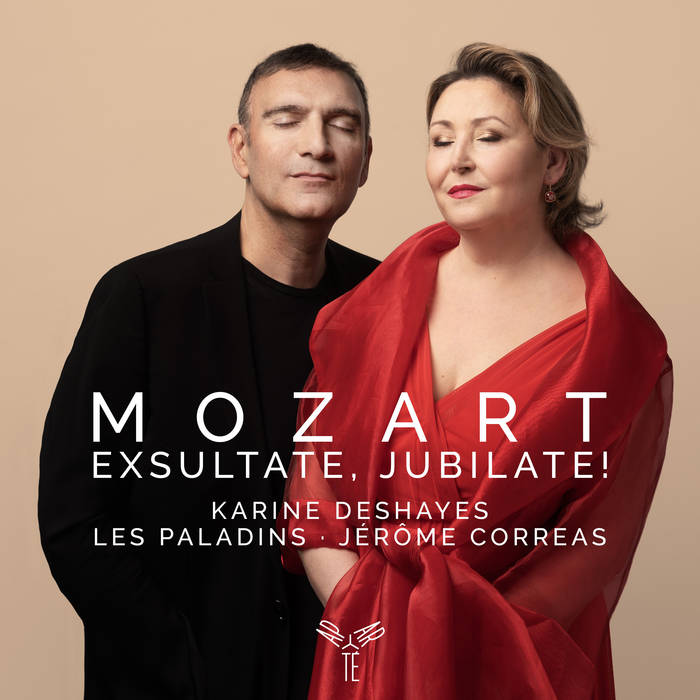Exsultate, Jubilate! – Karine Deshayes & Les Paladins
Rendition of Mozart’s ‘Exsultate, Jubilate!’ by Karine Deshayes and Les Paladins
Karine Deshayes, accompanied by Les Paladins and directed by Jérôme Correas, delivers a compelling interpretation of Mozart’s ‘Exsultate, Jubilate!’ in this captivating CD. Drawing comparisons with Carolyn Sampson’s 2006 recording, Deshayes offers a distinct approach, infusing the collection with a slightly different selection of sacred works.
One notable difference lies in the rendition of the title piece, ‘Exsultate, Jubilate!’. Deshayes opts for the original version, while Sampson chose the later iteration. This decision results in subtle yet significant variations, such as the replacement of oboes with serene flutes in Deshayes’ version. Both artists present a truncated Agnus from K317, omitting its choral ‘Dona nobis,’ but Deshayes takes a further departure by excluding the choral section of the ‘Laudate Dominum,’ a departure from Sampson’s interpretation.
Les Paladins, with their introduction to an aria from ‘Betulia liberata,’ establish a distinctive musical character. The string tone, marked by a noticeable edge, and the presence of natural horns create a rich and deliciously ripe atmosphere. The CD includes a 1772 symphony and the ‘Laudamus’ from the 1782 C minor Mass, retexted for the ‘psalm’ Davide penitente in 1785. Church sonatas add sweetmeats of unclouded charm, performed with a delightful playfulness.
Deshayes brings an operatic flair to her vocals, ornamenting freely in the Agnus and showcasing a fine mezzo extension in arias from ‘Betulia liberata’ and ‘Davide penitente.’ However, the choice of the curtailed ‘Laudate Dominum’ as the concluding piece raises questions about its somewhat inconclusive nature. The reviewer wonders why a piece like ‘Tra l’oscure ombre funeste,’ newly composed for Davide, wasn’t favored for a more impactful conclusion.
Karine Deshayes and Les Paladins deliver a delightful and nuanced rendition of Mozart’s sacred works. The distinctive musical choices and Deshayes’ operatic approach provide a fresh perspective on well-known compositions. Despite the slightly puzzling conclusion, the CD stands out as a noteworthy addition to Mozartian discography, showcasing the talent and creativity of its performers.

